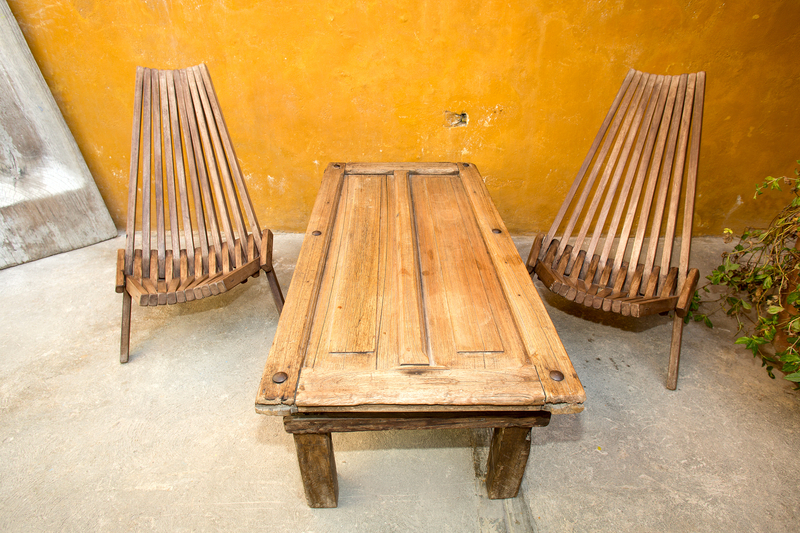Smart Ways to Save Cash on Bulky Waste Collection
Are you overwhelmed by the high costs associated with getting rid of old furniture, appliances, or construction debris? Bulky waste collection can eat into your budget, but there are secrets to trimming those expenses. In this comprehensive guide, we'll explore the smartest ways to save cash on bulky waste removal, offering dozens of actionable tips to help you get rid of your large waste affordably, efficiently, and responsibly.
Understanding Bulky Waste Collection
Before diving into money-saving ideas, it's important to clarify what constitutes bulky waste. Bulky waste (or large-item rubbish) typically includes items like old sofas, mattresses, wardrobes, white goods, garden equipment, and even renovation debris that cannot be placed in standard wheelie bins. Disposal of such items often requires special collection or trips to landfill or recycling centres, which can quickly become costly if not managed thoughtfully.

Top Money-Saving Strategies for Bulky Waste Collection
1. Take Advantage of Free Council Collections Where Available
Many local councils offer free or subsidised bulky waste collection services for residents, though the frequency and eligibility criteria may vary. Here's how to maximise this option:
- Check your council's website or call customer services to ask about upcoming collection events or the annual number of free pickups you're entitled to.
- Plan ahead -- if you can wait for scheduled rounds, you could pay nothing to dispose of your bulky waste.
- Bunch smaller items with your bulk pick-up to make the most of your quota.
2. DIY Drop-Offs: Use Local Household Waste Recycling Centres (HWRCs)
If you have access to a vehicle and can handle the heavy lifting, dropping items directly at your nearest recycling centre is often free or much cheaper than paid curbside collection. Consider these tips:
- Sort and condense your waste into as few trips as possible to save on fuel.
- Check the rules for proof of residency and accepted items on your council's website.
- Look out for special bins for electronics, textiles, metals, and wood to keep items out of landfills.
3. Share Costs with Neighbours or Community
Collaborative disposal is a smart way to reduce the cost of bulky rubbish collection--especially when minimum charges apply or a bin isn't entirely full. Here's how to implement this strategy:
- Coordinate with friends, family, or neighbours--collect all your bulk items together and split the fee.
- Join local neighbourhood social groups online (like Facebook groups, Nextdoor, or WhatsApp communities) to find others ready for waste pickup.
- Consider hiring a skip together and sharing the load to offset the expense.
4. Sell, Donate, or Give Away Unwanted Bulky Items
One of the most effective ways to save money on large item disposal is to avoid disposal altogether! Many items are simply unwanted, but still usable--think old couches, dining sets, or working appliances. Consider:
- Sell items on platforms like Gumtree, Facebook Marketplace, Craigslist, eBay, or local classifieds. Even items destined for landfill may have value as parts or scrap!
- Donate usable large items to charities, shelters, schools, or reuse organisations. Many charities offer free collection of bulky donations.
- Give away for free using Freecycle, Freegle, or local community boards. Posting "Free for Collection" can ensure your items are gone quick, and often at no cost to you.
5. Hire a Licensed Man & Van Rubbish Clearance Service
Man & Van clearance teams are a convenient alternative to skip hire and council collections. To save, use these tips:
- Get multiple quotes from local providers and negotiate fixed prices based on the amount and nature of bulky waste.
- Check the company's waste carrier licence to avoid illegal dumping fines or fly-tipping concerns.
- Choose companies that charge by volume or item--sometimes this is cheaper than weight-based pricing.
- Book services during weekdays or off-peak times for potential discounts.
6. Reduce Volume by Dismantling and Flat-Packing
The size and volume of rubbish have a direct correlation to how much you pay for its removal. Flat-pack anything you can:
- Take apart furniture like beds, wardrobes, or shelving units--this can significantly save you space in a skip or van, reducing costs.
- Place smaller, lightweight items inside larger ones (nesting).
- Remove and responsibly dispose of hazardous components (batteries, airbags, refrigerants) to avoid extra fees.
7. Opt for Smaller, Flexible Skip Bags over Traditional Skips
If you only have a few bulky items or limited space, consider using a skip bag (e.g., Hippobag or alternative brands) instead of hiring a full skip:
- Skip bags are typically cheaper to hire, flexible in placement, and can be filled over weeks or months as needed.
- Purchase skip bags from DIY stores, supermarkets, or online for less than a skip rental.
- Arrange for collection only when they're full, minimising costs and space occupied on your property.
8. Take Advantage of Manufacturer and Retailer Collection Schemes
Many retailers now offer free or low-cost take-back schemes when you buy a large replacement item, especially for white goods and furniture. Look for:
- When purchasing a new fridge, freezer, washing machine, or mattress, ask about old item disposal at checkout.
- Some companies provide one-for-one swaps--they take away the item being replaced at little or no extra charge.
- Retail take-back often works out cheaper and more eco-friendly than paying a separate collection fee.
9. Review Local Private Bulky Waste Collectors' Offers
Competition among private waste companies can mean regular discounts or price-matching. To get the most competitive deal:
- Research multiple collectors in your area and request detailed, written quotations.
- Ask about minimum loads, time slots, and last-minute cancellation charges to avoid hidden fees.
- Inquire about any current seasonal promotions or loyalty discounts.
10. Check If You're Eligible for Council Concessions
Residents on low incomes, pensioners, or other qualifying groups may receive subsidised bulky waste disposal rates or additional free collections from the council:
- Consult your local authority's website for eligibility guidelines and application instructions.
- Prepare proofs of eligibility (such as pension credits or income-related benefits) to present when making your booking.
Additional Tips for Affordable Bulky Waste Disposal
Verify What Counts as Bulky Waste
Understanding the local categorisation of "bulky waste" is key, as some councils only accept specific items (e.g., furniture and appliances), while refusing DIY/construction waste or hazardous materials. Incorrectly categorised waste can result in refusal or added expenses.
Plan Your Collection Dates Wisely
Avoid last-minute bookings. Scheduling your bulky item removal for off-peak times or coordinating with other services can reduce costs:
- Book collections outside of spring cleaning or end-of-tenancy rushes.
- Pair your collection with other services (e.g., garden clearance, renovation waste) to get a group price.
Think Environmentally: Reduce, Reuse, Recycle
- Reusing or repairing items cuts disposal costs and helps the environment.
- Some community workshops, charities, or repair cafes may take broken items for refurbishment.
- Recycling centres often accept parts that can be stripped and re-used, especially with metals and electronics.
Document and Research Local Waste Laws
Always check your city or county's waste disposal regulations to avoid fines, fly-tipping charges, or expensive pickups for banned items.
Keep Receipts and Register for Early Booking Deals
Many councils and private collectors run periodic bulk collection promotions or discounts for repeat customers. Register for newsletters and keep receipts for possible tax deductions if you're a landlord or business.

Common Bulky Waste Collection FAQs
- How often can I use council bulky waste collection services?
Most councils limit collections to a few times per year per household. Check online or call your council for specifics. - Can I book a joint bulky waste collection with neighbours?
Yes! This is a smart way to save money on large item removal. - What's the penalty for fly-tipping instead of paying for removal?
Illegally dumping bulky items can result in heavy fines and potential prosecution. Always use licensed services. - Does bulky waste get recycled?
Many items do; check with your provider about what happens to collected rubbish.
Conclusion: Save More, Waste Less with Smarter Bulky Waste Disposal
Being strategic about bulky waste collection doesn't just reduce your costs--it also benefits your community and the planet. By exploring council collections, community sharing, donation opportunities, and efficient packing, you can slash your bulky waste disposal costs and avoid unnecessary landfill.
Whether you're clearing out after a move, tackling a renovation, or just swapping out tired furnishings, these easy ways to save money on bulky waste removal make a real difference in both your wallet and your ecological footprint. Start saving today by checking your local options, sharing with neighbours, and making eco-friendly disposal choices!
